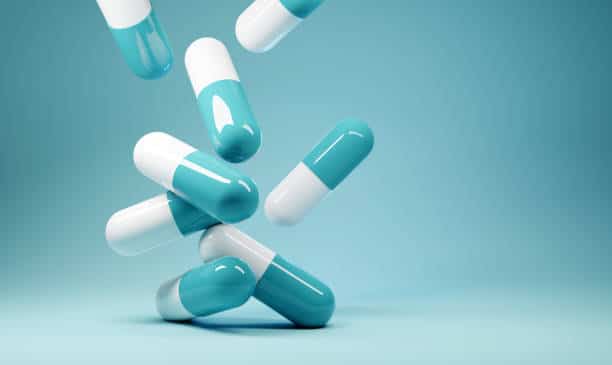If you’ve ever been on antibiotics, you know bloating is one of the most common side effects. But how long does this bloating last after you finish your course of antibiotics? We’ve got the answer for you.
Table Of Contents
−- How Long Does Bloating Last After Antibiotics
- Is It Normal To Be Bloated After Antibiotics?
- Antibiotics and Bloating: What’s the Link?
- Why Do Antibiotics Cause Bloating?
- How Long Does It Take To Flush Antibiotics Out of Your System?
- When Will the Bloating Go Away?
- How Do You Get Rid of Bloating From Antibiotics?
- How to Relieve and Prevent Bloating From Antibiotics
How Long Does Bloating Last After Antibiotics
It is common to experience bloating as a side effect of taking antibiotics. This is because antibiotics can kill both the good and bad bacteria in your gut, leading to an imbalance. The good news is that probiotics can help to restore the balance of bacteria in your gut, and relief from bloating can usually be felt within 48 hours.

Is It Normal To Be Bloated After Antibiotics?
It is normal to experience bloating after taking antibiotics. This is because antibiotics can kill off the good bacteria in the gut that help to keep the stomach regular. Eating large meals can also contribute to bloating. You should consult your doctor if you are experiencing severe bloating, abdominal pain, or other intestinal problems.
Antibiotics and Bloating: What’s the Link?
Antibiotics are used to treat bacterial infections; however, they can be helpful for some patients with symptoms of gas and bloating. These drugs often cause gastrointestinal side effects, such as nausea, diarrhea, bloating, indigestion, abdominal pain, and loss of appetite.
Generally, bloating associated with flatulence is prevalently linked to the same mechanism. Therefore, it would be expected to improve with antibiotic therapy. Empiric antibiotic trials are not without risks due to the potential for promoting drug resistance and other side effects.
For an infected GI tract, bloating can be addressed with an antibiotic. A special type of infection in the small bowel, where excessive bacteria prevent the absorption of nutrients from food (malabsorption), can also cause bloating.
Why Do Antibiotics Cause Bloating?
Antibiotics can cause an overgrowth of bacteria in the small intestine, contributing to bloating and cramping even after the person stops taking the antibiotic. A person should speak with a doctor before taking any supplements or changing their diet to include more prebiotics.
The researchers found that participants who consumed a high-fiber diet had lower levels of inflammation and reduced levels of anxiety, depression, and hostility. In another study published in Nutrients in 2016, researchers found that a diet rich in prebiotics was linked to a lower risk of cardiovascular disease. They also found that those.
These symptoms (for me) began a week or so AFTER the antibiotic treatment was over. They lasted well over a month (about 6 weeks)
How Long Does It Take To Flush Antibiotics Out of Your System?
Antibiotics can stay in your system for a few hours or days. The exact amount of time will depend on the drug you are taking. Penicillin will be out of your system after your last dose in about 7.7 hours. Penicillin has an elimination half-life of approximately 1.4 hours.
When Will the Bloating Go Away?
If your bloating is due to something you ate or drank, it should begin to ease within a few hours to days. If you are bloated due to hormone fluctuations, the bloating should go away within a few days. You should see a doctor if you are bloated due to something more serious, such as food intolerance. Exercises, supplements, and massages can help reduce bloating quickly, and simple lifestyle changes can help prevent it from happening in the first place.
How Do You Get Rid of Bloating From Antibiotics?
You can do several things to get rid of bloating from antibiotics. Drink lots of fresh water and be mindful of consuming some good probiotics with each meal. Probiotics may reduce antibiotic-related diarrhea, according to inconsistent studies. Antibiotics can destroy probiotics’ helpful bacteria, so space them out. Probiotics can help restore microbial equilibrium after antibiotics.
Prebiotics feed intestinal microorganisms. Before and after antibiotics, feeding the beneficial bacteria helps restore intestinal equilibrium. Vegetables and food you should consume are:
- onions
- garlic
- bananas
- Chicory
- Artichokes
- yogurt
- formulation
- cereals
- bread
Fermented foods include probiotics. Naturally fermented drinks like miso soup, congee, fermented lemonade, fruit shots, soups, herbal teas, and water can help reduce bloating. You can also try bone broths or other sources of glycine, like gelatin and aloe vera juice.
After finishing antibiotics, consuming fiber helps reestablish good bacteria and aid digestion. Fiber may boost intestinal bacteria.
- kale
- spinach
- Spinach
- collards
- Bernaise
- parsley
- Coleslaw
- cabbage
- Fiber
- artichokes
- bananas
- berries
- beans
- broccoli
- lentils
- nuts
- peas
- cereals
How to Relieve and Prevent Bloating From Antibiotics
You can do a few things to relieve and prevent bloating from antibiotics. The bottom line is to take probiotics during antibiotic treatment to reduce the risk of diarrhea. Additionally, light exercise has been found to help. Finally, drinking plenty of water is key to preventing bloating.

Editorial Staff
Our writers, editors, content managers, and SEO specialist. We all take part in crafting amazing articles. We spend hours ensuring that each article is based on facts, researched, and thorough. You'll never want to click the back button to look for more answers other than here!
